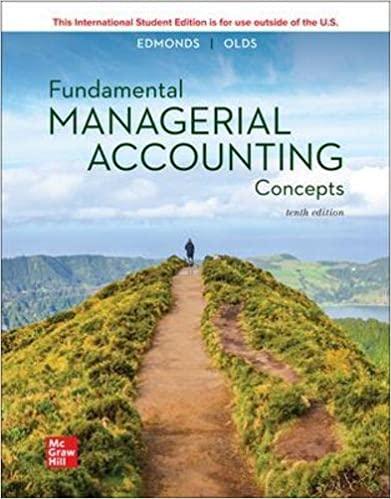Question
The statements of comprehensive income for Alicante plc, London plc and Madrid plc for the year ended 31 October 2020 are as follows: Statements of
The statements of comprehensive income for Alicante plc, London plc and Madrid plc for the year ended 31 October 2020 are as follows:
| Statements of comprehensive income for the year ended 31 October 2020 | |||
|
| Alicante | London | Madrid |
|
| 000 | 000 | 000 |
| Sales | 135,000 | 77,000 | 66,500 |
| Cost of sales | 45,000 | 32,000 | 24,000 |
| Gross profit | 90,000 | 45,000 | 42,500 |
| Expenses | 23,500 | 26,600 | 37,000 |
| Dividends received | 6,850 | N/A | 3,000 |
| Profit before tax | 73,350 | 18,400 | 8,500 |
| Corporate Taxation | 20,350 | 8,750 | 3,500 |
| Profit for the year | 53,000 | 9,650 | 5,000 |
| Dividends paid in year | 26,000 | 5,250 | 2,000 |
The following information is also relevant:
- Alicante plc acquired 60% of the shares in London plc on 1 November 2016 for a cash consideration of 51,500,000. The balance on the retained earnings of London plc was 45,000,000 and the balance on the general reserve of London plc was 20,000,000 on that date.
- Alicante plc also acquired 30% of the shares in Madrid plc on 1 November 2017. The balance on Madrid plcs retained earnings was 12,500,000 and the general reserve of Madrid plc was 2,000,000 on that date. There was a revaluation on Madrid Plcs net assets on that date and this revaluation has been adjusted in the statements.
- During the year Alicante plc sold London plc goods for 7,000,000 which included a mark-up of 40%. Fifty-five percent (55%) of these goods were still in inventory at the end of the year.
- As at 31 October 2020, goodwill impaired by 20%, and the Method 1 is used to calculate the goodwill.
- During the year, the corporate taxation expense at Alicante plc has been overestimated by 1,500,000, and this has not been adjusted.
You Are Required To:
a. Prepare Alicante plcs consolidated statement of comprehensive income for the year to 31 October 2020. All workings should be shown. (Note: The non-controlling interest should not be charged with its proportion of the unrealised profit when calculating the consolidated profit attributable to non-controlling shareholders.)
b. IFRS 10 and also IAS 28 detail the criteria for determining whether a company should be considered a subsidiary or an associated. A key issue is the distinction between significant influence and control. You are required to critically evaluate the effectiveness of these criteria and discuss the usefulness of consolidated financial statements to shareholders and investors.
c. The criteria for determining the extent of goodwill upon the acquisition of a subsidiary follows two different approaches. Method 2 in the consolidation uses the fair value measurement approach. You are required to critically evaluate the fair value approach of measuring goodwill
Step by Step Solution
There are 3 Steps involved in it
Step: 1

Get Instant Access to Expert-Tailored Solutions
See step-by-step solutions with expert insights and AI powered tools for academic success
Step: 2

Step: 3

Ace Your Homework with AI
Get the answers you need in no time with our AI-driven, step-by-step assistance
Get Started


